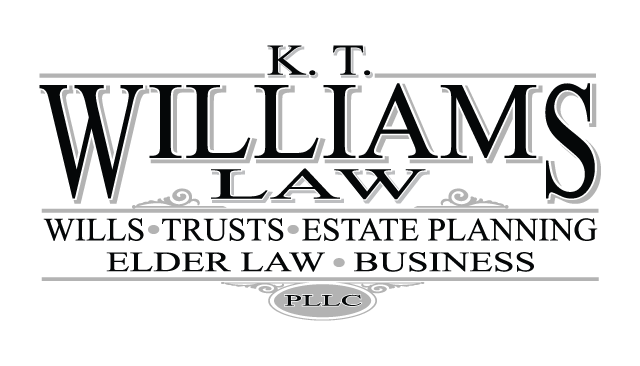Joint Accounts: Avoiding Unintended Consequences
We use many tools in an estate plan. The tools may include Wills, Trusts, and Powers of Attorney. Also, the tools may include the beneficiary designations of retirement accounts and life insurance and carefully titling assets so that they pass the way we want. How an account is titled can play a major role in an estate plan. And I’ve seen the use of joint accounts prove very helpful, but I’ve also seen them lead to major, unintended consequences. So be very careful before you place someone on your account.
What is a joint account?
A bank or investment account can be a joint account or single account. This relates to the number of owners. A single account is an account owned by one person. A joint account is owned by more than one. The owners of the joint account are joint owners, and each of them can control and use the account as their own. Spouses may have joint accounts, and I often see joint accounts owned by a parent and a child.
Why Have A Joint Account?
A joint account isn’t always a bad idea. It can be a convenient way for more than one person to write checks on the account and to make withdrawals. Often, when someone tells me they’ve placed a child on their account, the account changes were based on recommendations from a friend, child, or bank employee. The goal for the change is usually to allow the child to help the parent with writing checks, paying bills, or taking care of anything else that may come up with the account. And that goal is achieved when the child is placed on the account.
When the parent dies, the joint owner becomes the sole owner of the account. And the new owner doesn’t have any obligation about how the account is used. This can lead to unintended consequences. But there are other ways to achieve the convenience of having a joint owner without the unintended consequences that can arise.
What Are Some Unintended Consequences of Joint Accounts?
Some of the unintended consequences occur often. First, there is the joint owner, often a child, who uses the account in ways not intended by the parent. For example, the parent may only intend for the child to use the account for the parent’s needs. But the child, as a joint owner, can do anything they want to do with it. So the account is an easy source of funds to spend on things unrelated to the parent. And it happens far too often.
Another unintended consequence comes up when the parent expects the child who is a joint owner to split the account with others at the parent’s death. In other words, the parent often expects the child who is on the account to treat the account as part of the parent’s assets to be split equally with their siblings.
Sometimes it will work out exactly as the parent intended. But too often it does not. And even when it does, family tension can result as the siblings who were not joint owners wonder if they got everything their parent intended and if their sibling misused the money or took some that the parent intended to be split.
When a child decides not to split a joint account even though the parent intended it to be split, there are a few common justifications given. Often, the child decides that the parent really meant for them to keep the entire account balance for themselves after all. They justify this with the argument that the parent wouldn’t have made them a joint owner unless the parent wanted the child to keep the entire account at the parent’s death. And the child will ease their guilt by recalling all the help and care they provided for their parents while their siblings did very little or nothing at all to help. I’ve noticed that it’s easy to overestimate our contribution and underestimate the contribution of others.
These justifications may be true. But there are better ways to avoid the unintended consequences and family tension that arises. A Power of Attorney.
How Could A Power of Attorney Help?
A joint account is a fine idea in some circumstances. When there are no siblings to share in a parent’s estate, for example, a parent could add their only child on a joint account with them without some of the unintended consequences that could occur. Even still, you should evaluate carefully how much you can trust the person you would put on your account. Ask yourself – what is the risk that my money might be spent inappropriately? And when you have multiple children, there are the other factors. How great is the risk that the account may not be split the way I want after my death? What if my choice to have a joint account with one of my children creates suspicion and tension between that child and their siblings after I die? Are these risks that I am willing to take? If those risks bother you, there is a solution: A Power of Attorney.
The agent (attorney-in-fact) under a Power of Attorney typically has the authority to write checks on an account, to make deposits to the account, and to do anything else needed. But the agent is limited by law to only doing what is in your best interest. So the agent isn’t permitted to use the account for their own needs or desires. And if they did, they could be held accountable to you and your heirs.
Also, by using a Power of Attorney, you could rest knowing that the account will pass to the beneficiaries you desire. The account would be controlled by your Will or by beneficiary designations you put on the account.
Making someone a joint owner on an account gives them control and ownership of the account. Making them an agent under a Power of Attorney simply puts them in a position to help you. When the goal is to get help but not to give away an account, the Power of Attorney is usually a better option. If you would like some help evaluating whether a Power of Attorney or joint account is right for your situation, contact us. We’re glad to help.



